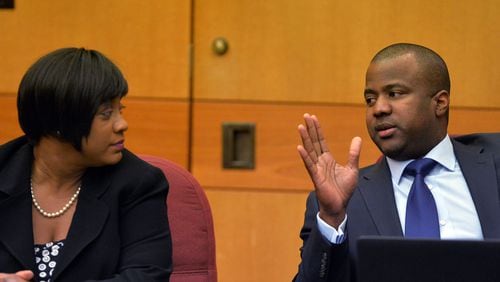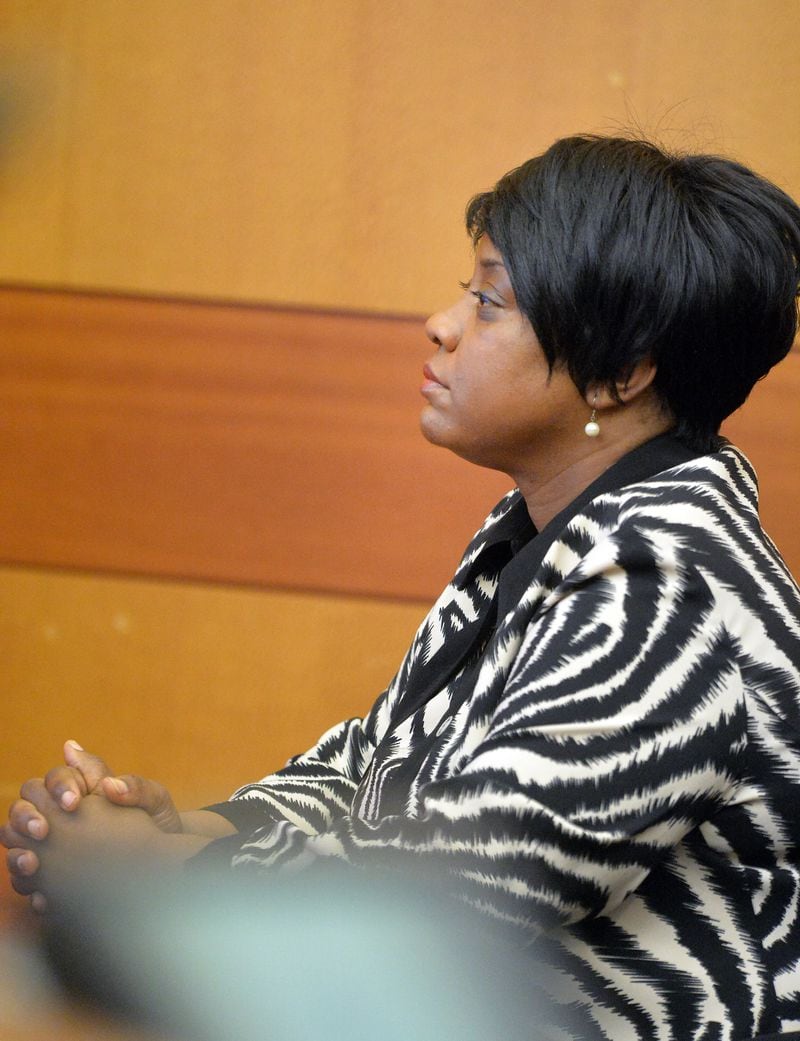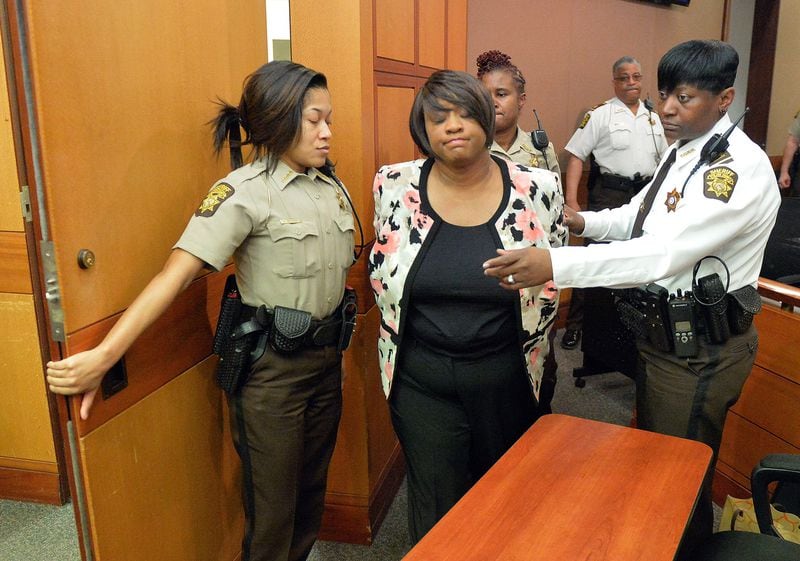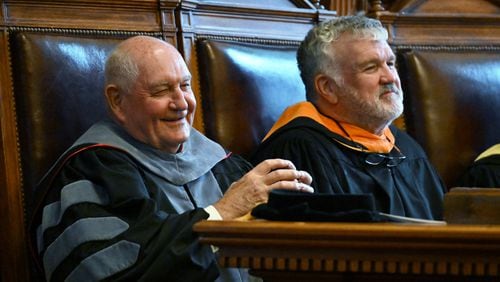An attorney argued Wednesday that a former Atlanta educator convicted in the months-long school cheating case two years ago should get a new trial because the judge gave jurors too much latitude in reaching their verdict.
"He was adding a new offense that was not part of the jury form," lawyer Ben Davis told a panel of the Georgia Court of Appeals on behalf of Tamara Cotman, a former Atlanta Public Schools regional superintendent. "We don't know how the jury reached its verdict."
Fulton County Deputy District Attorney Linda Dunikoski disagreed. “It was a good jury charge,” she said of now-retired Judge Jerry Baxter’s explanation of the law that he gave the jury before deliberations began.
Cotman was one of 11 APS teachers and administrators convicted in 2015 of racketeering in the scandal over cheating on standardized tests.
Cotman’s appeal focuses on the law and whether it was used correctly, rather than whether or not she and another defendant were actually guilty of racketeering.
The argument Wednesday was to have been before three State Appeals Court judges, but one of them, Tilman Self, was absent.
Of the dozen former educators who went on trial, one was acquitted, two admitted to their crimes and were given probation and other lighter punishments, while nine were sentenced to one or more years in prison.
The nine slapped with prison terms are free on bond while they appeal. As Cotman and fellow former educator Angela Williamson seek new trials through the Court of Appeals, the other seven have given notice that they’ll take their legal challenges through the trial court — Fulton County Superior Court — in hopes of getting their convictions overturned.
Several of Cotman’s former co-defendants came to the appeals court Wednesday to hear her argument.
Racketeering is a complicated crime that requires prosecutors to show that defendants are guilty of at least underlying crimes — such as making false statements and writings, false swearing, or theft by taking — as was the case in the APS trial.
Davis argued that Judge Baxter erred when he told jurors they did not have to necessarily agree that the same underlying crimes were committed to convict the educators of racketeering. They just had to agree that there were underlying crimes.
“The risk of a rift among the jurors is a real one,” Davis said.
But Dunikoski said the very issue Davis raised — how jurors are instructed on the law — was resolved 27 years ago by an appellate court that was asked to rule on how much discretion a judge can give a jury.
The APS test-treating case, the longest trial in Georgia history, came years after The Atlanta Journal-Constitution in 2009 began reporting on suspicious test score improvements at struggling schools in low-income neighborhoods.
In 2013, a Fulton County grand jury indicted former APS Superintendent Beverly Hall (who died of cancer before she could be tried) and 34 others on racketeering charges — specifically, operating a scheme to improve standardized test scores by helping students with answers or changing their wrong answers to correct ones.
Twelve went to trial and the rest pleaded guilty to lesser crimes and were sentenced to probation.
A jury was seated in late September 2014 to hear the case against the 12, and a verdict was reached on April 1, 2015. It took another two years to file appeals because that's how long it took the court reporter to transcribe and proof 22,000 pages of testimony.
Cotman, unlike her co-defendants, went to trial twice. The first time, she was acquitted on a single charge of tampering with a witness in the test-cheating case. Then, in the racketeering case, she was convicted.
About the Author








